✓ Joining us on our Whatsapp Channel: 💬 Explore and Escape!.
Booking through us:
✓ 🏩 🛌 Handpicked Luxury Stays in Budget: Booking.com | Agoda.com
✓ 🍹⛱️ Deals on Private xfers, SIM Cards, City tours, Day trips : 📍🗺️ GetYourGuide | 🛵🧳 Klook
There are an array of landmarks in Europe
to see, with Serbia sharing quite a few of those!Serbia, a land woven with rich history and culture, is home to landmarks that have stood the test of time and remained steadfast through the ages.
These iconic structures and natural wonders have become symbols of Serbia’s identity, drawing visitors from all corners of the world to marvel at their magnificence.
From towering fortresses perched high on clifftops, to ancient monasteries nestled in the heart of pristine nature, Serbia’s landmarks stand as a testament to the resilience and endurance of its people.
1. Belgrade Fortress
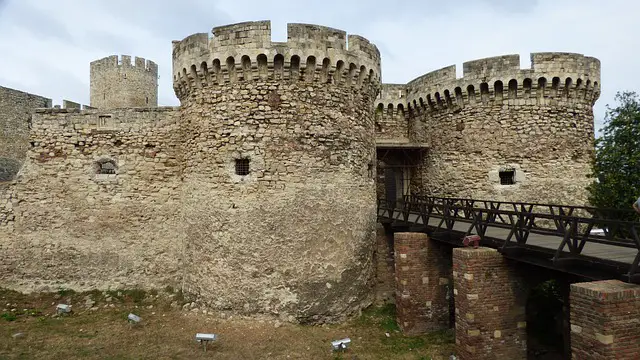
A historic fortress located on a ridge overlooking the confluence of the Sava and Danube rivers in the heart of Belgrade, Serbia.
What to see or do: Explore the massive stone walls, medieval towers, and gateways of the fortress. Visit the Military Museum and see exhibits featuring weapons, uniforms, and military memorabilia from various periods of Serbian history.
Stroll through the picturesque park that surrounds the fortress and enjoy scenic views of the city and rivers.
Don’t miss: The Roman Well, an impressive underground water source that dates back to the 18th century. Climb to the top of the Clock Tower for panoramic views of the city.
Insider travel tips: Visit the fortress during sunset to witness an unforgettable view of the sun setting over Belgrade. Wear comfortable shoes and be prepared for lots of walking as the fortress is quite large.
Don’t forget to bring a camera as there are plenty of photo opportunities.
2. Kalemegdan Park
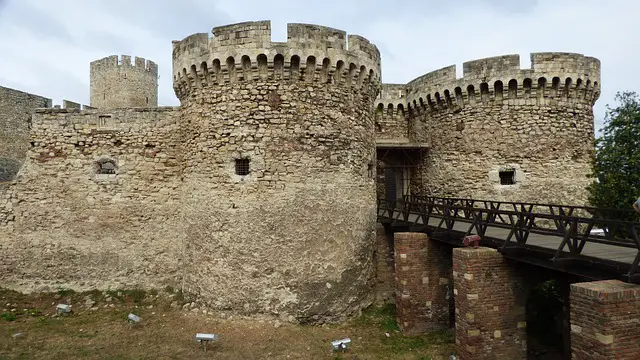
Kalemegdan Park is a historic fortress located in the heart of Belgrade, Serbia. It’s a vast green space with scenic views of the Danube and Sava rivers, dotted with ancient ruins and monuments.
What to see or do: – Explore the fortress walls and gates that date back to the 13th century.
Don’t miss: The Pobednik (Victor) monument, a towering statue of a Roman soldier that overlooks the city from atop the fortress.
Insider travel tips: – Kalemegdan is free to enter and open 24/7, but the museums within the fortress have their own specific opening hours.
3. Republic Square
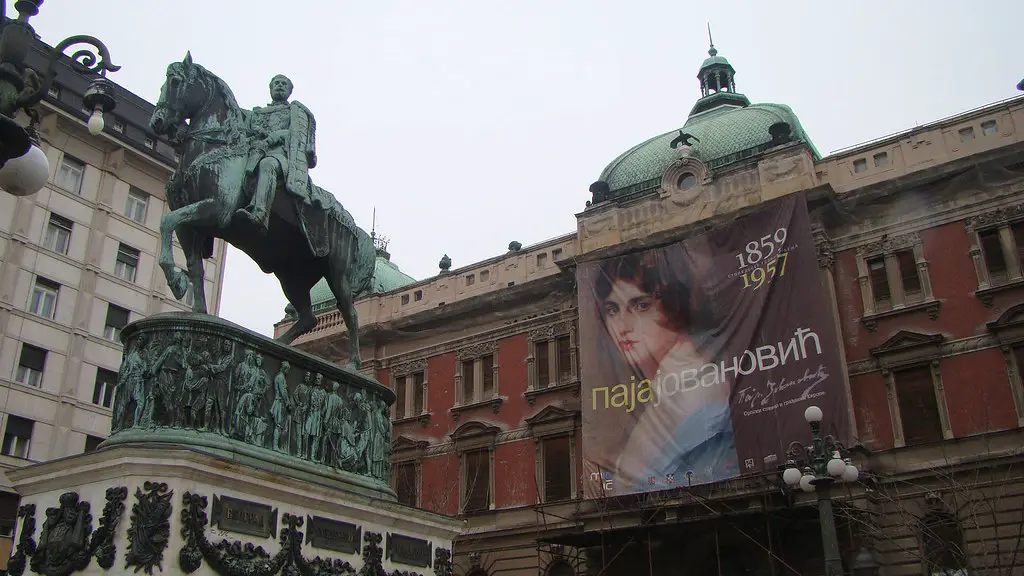
Republic Square is the central square of Yerevan, the capital of Armenia.
What to see or do: The square is surrounded by stunning buildings like the Government House, the History Museum, the National Gallery, and the Marriott Hotel.
Visitors can take a leisurely stroll around the square and observe the beautiful fountains, sculptures, and manicured gardens.
Don’t miss: The centerpiece of the square is the famous singing and dancing fountain, which offers an awe-inspiring water and light show. The fountain is a popular spot to take photographs and videos.
Insider travel tips: – The fountain water show starts at 9 pm and can be enjoyed until 10 or 11 pm depending on the season.
4. Cathedral of Saint Sava
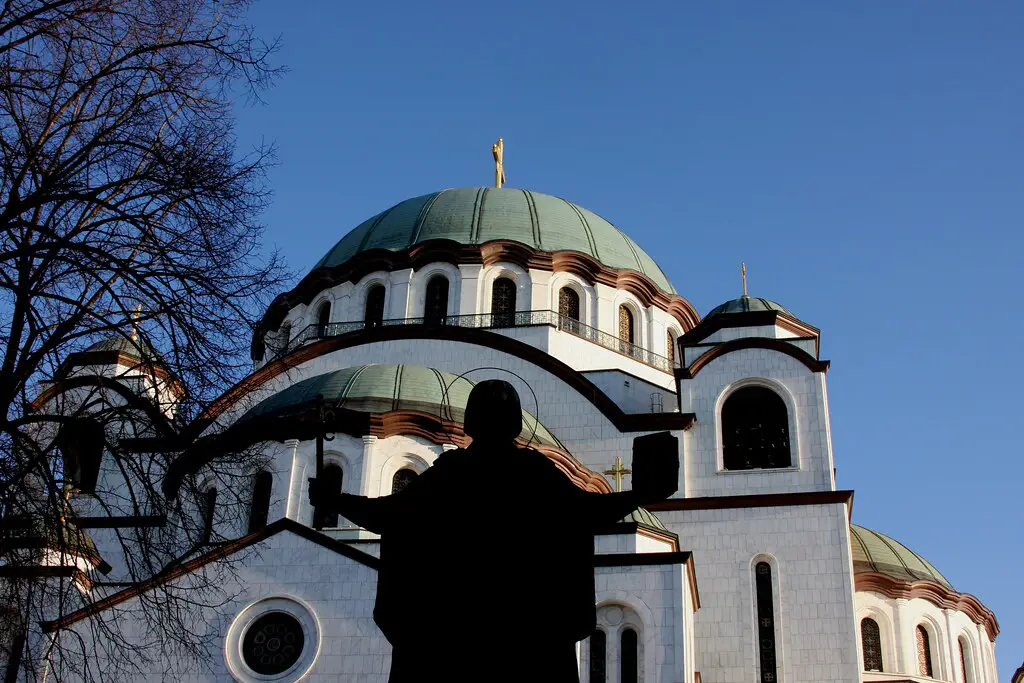
The Cathedral of Saint Sava is a massive Serbian Orthodox Church dedicated to St. Sava, the founder of the Serbian Orthodox Church.
What to see or do: Visitors can admire the grandeur of the church’s architecture, including its large central dome and four smaller domes. The interior of the church is also stunning, with beautiful frescoes and elaborate mosaics decorating the walls and ceiling.
Don’t miss: Be sure to check out the crypt, which houses a collection of religious artifacts and the remains of Saint Sava.
Insider travel tips: Visitors should dress modestly when visiting the cathedral, as it is an active place of worship. Additionally, make sure to arrive early to avoid the crowds and take advantage of the free admission.
Finally, be respectful of the church and its traditions, including refraining from taking photos in designated areas.
5. National Museum of Serbia
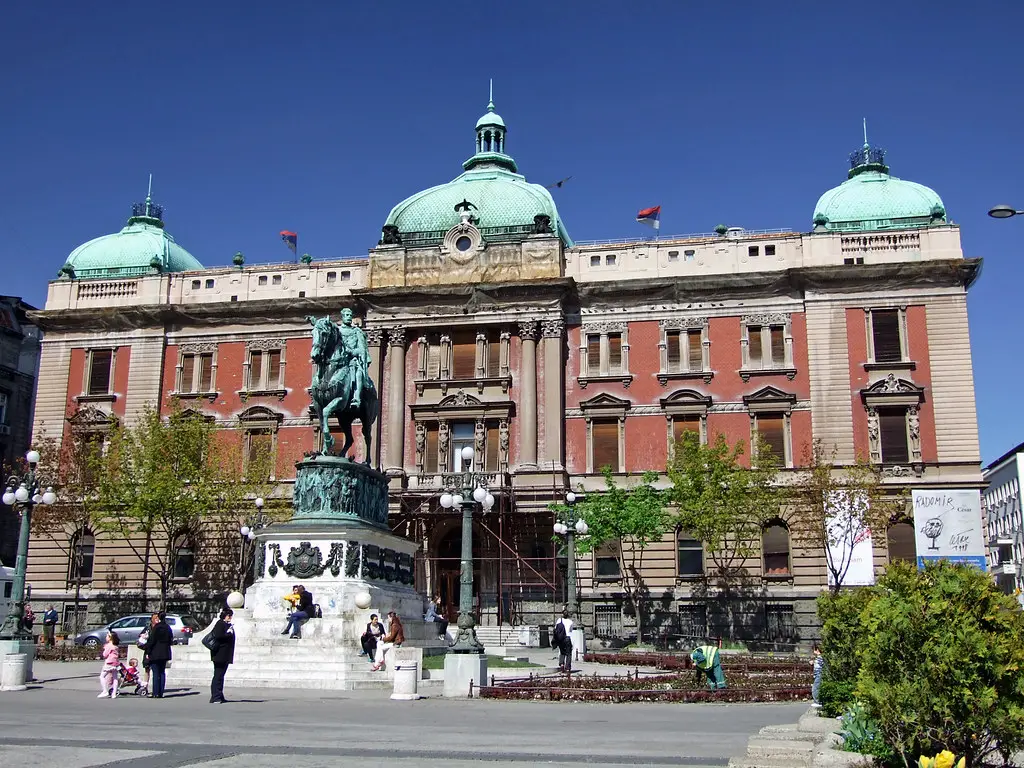
The National Museum of Serbia is the largest and oldest museum in Serbia, showcasing the country’s rich cultural history and art.
What to see or do: Visitors can explore a vast collection of archeological artifacts, medieval art, Serbian Orthodox Christian art, and modern art. The museum also offers temporary exhibitions, educational programs, and tours.
Don’t miss: The museum’s highlight is the Miroslav Gospel, a 12th-century manuscript that is considered to be the oldest Serbian Cyrillic manuscript and a symbol of national identity.
Also, check out the Roman Emperors’ Gallery and the Contemporary Art Collection.
Insider travel tips: – The museum is closed on Mondays, so plan your visit accordingly.
6. Nikola Tesla Museum
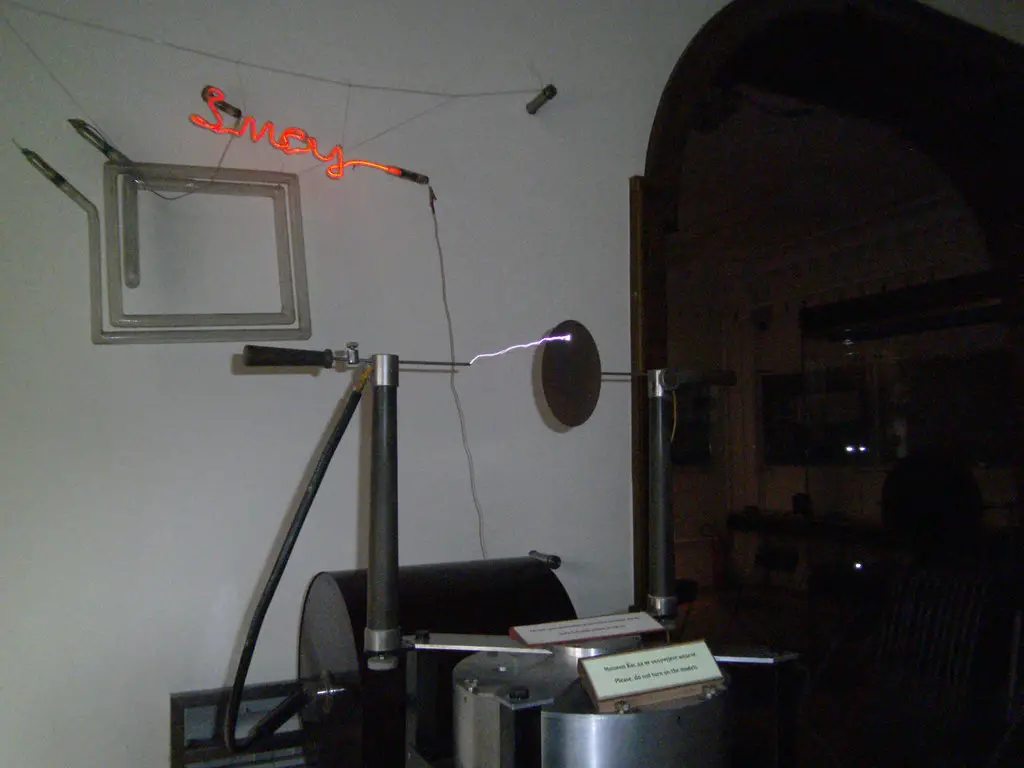
A museum dedicated to the life and work of the famous inventor, Nikola Tesla.
What to see or do: Explore exhibits showcasing Tesla’s inventions, including original equipment and models, as well as photographs and documents from his life. Watch demonstrations of Tesla’s innovations in electricity and radio communications.
Don’t miss: Visiting the impressive Tesla coil exhibit that shows off electrical arcs and sparks that span several feet. Check out the model of Tesla’s Colorado Springs laboratory and the replica of his famous “Death Ray”.
Insider travel tips: – Plan to spend at least 2 hours exploring the museum and its exhibits.
7. Skadarlija
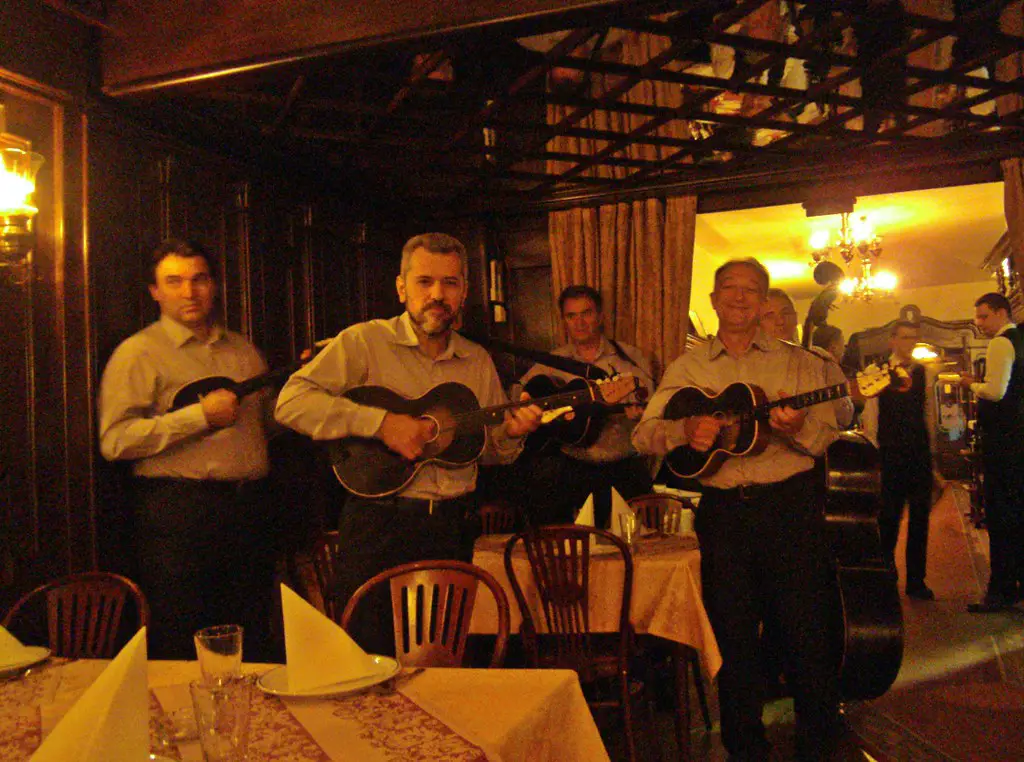
Skadarlija is a bohemian quarter in Belgrade, Serbia that is known for its lively atmosphere and traditional Serbian cuisine.
What to see or do: Take a stroll through the cobblestone streets and admire the colorful facades of the traditional houses.
Enjoy live music performances at one of the many cafes and restaurants serving up delicious Serbian dishes such as cevapi, sarma, and gibanica.
Don’t miss: Visit the house museum of Djura Jaksic, a famous Serbian painter and writer who lived in Skadarlija.
And be sure to try rakija, a popular Serbian alcoholic drink made from fruit, which is often served as a welcome drink in the restaurants.
Insider travel tips: Visit Skadarlija during the summer months to experience the lively outdoor atmosphere and to catch the annual Street Musicians Festival. Be prepared for crowds and limited parking, so consider taking public transportation or walking from the city center.
8. Danube Park
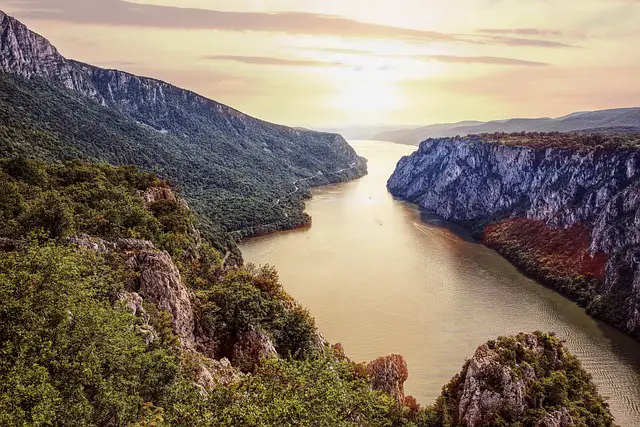
Danube Park (also known as Donaupark) is a public park located in the Donaustadt district of Vienna, Austria.
What to see or do: – Enjoy a peaceful stroll in the park surrounded by nature.
Don’t miss: – The Danube Tower, a tall observation tower with panoramic views of Vienna and surrounding areas.
Insider travel tips: – Consider visiting during the week when the park is less crowded.
9. Novi Sad Synagogue
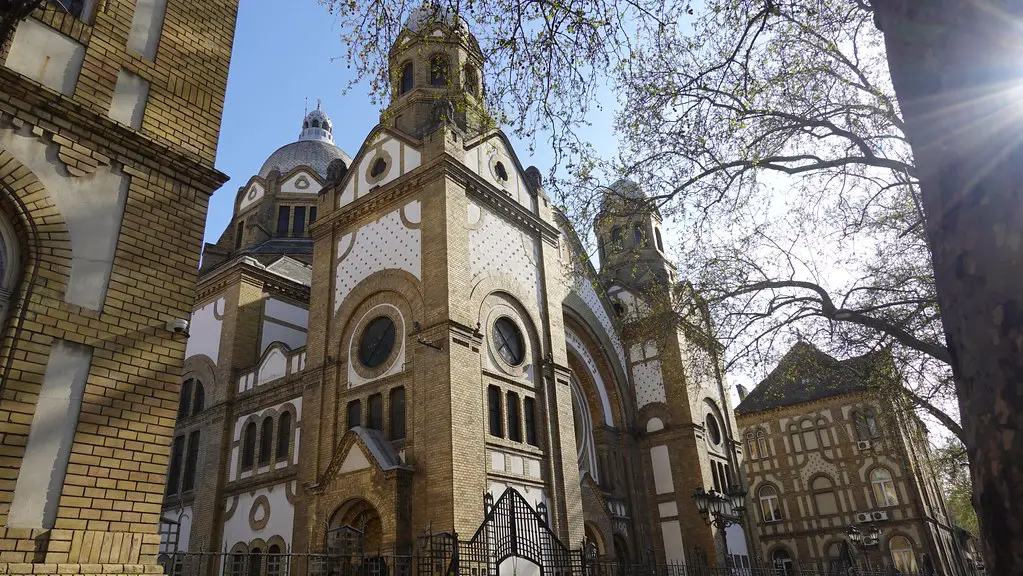
Novi Sad Synagogue is a historic Jewish synagogue located in Novi Sad, Serbia.
What to see or do: Visitors can take a tour of the synagogue’s stunning architecture and interior, which includes stained glass windows, intricate wall paintings, and a breathtaking dome.
Don’t miss: Don’t miss the opportunity to learn about the synagogue’s rich history as a hub of Jewish life in Novi Sad before its destruction during WWII.
Insider travel tips: Check the synagogue’s website for opening hours and special events, and consider attending a concert or cultural event held there.
10. Sremski Karlovci
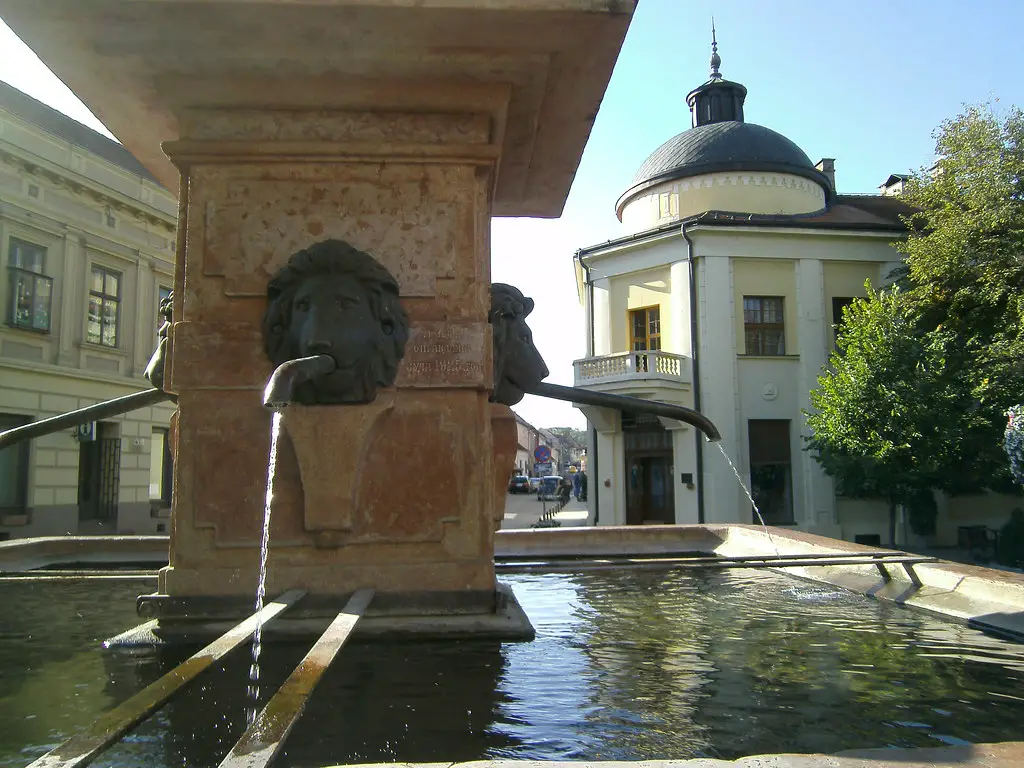
A charming town near Novi Sad in Serbia known for its historic architecture, wine production, and cultural heritage.
What to see or do: Admire the Baroque-style buildings and monuments in the town center, visit the Orthodox and Catholic churches, take a stroll along the Danube river, explore the local wineries, and try the famous Karlovacka berba dessert.
Don’t miss: The Four Lions Fountain, the Gymnasium of Karlovci, the Patriarch’s Palace, the Chapel of Peace, and the Wine Museum.
Insider travel tips: Don’t forget to taste the local wines and buy a bottle to take home. If you have time, take a day trip to nearby Fruška Gora National Park for some hiking and nature exploration.
Avoid visiting on weekends when the town can get busy with tourists.
11. Petrovaradin Fortress
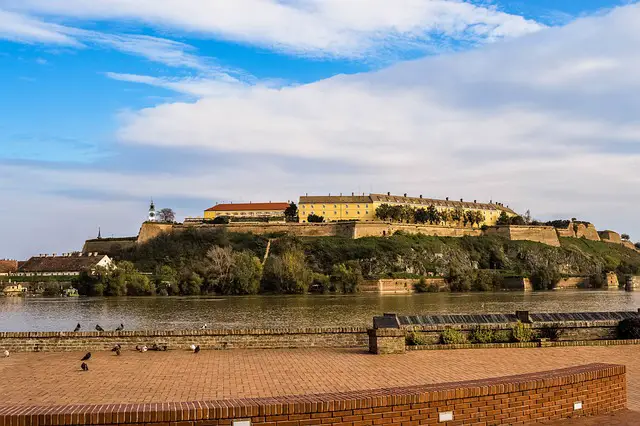
Petrovaradin Fortress is a massive 18th-century fortress in Novi Sad, Serbia, that dominates the city skyline.
What to see or do: – Visit the underground tunnels that run beneath the fortress.
Don’t miss: The chance to witness the midday firing of the cannon. This tradition has been going on for centuries and adds a unique touch of history to the fortress experience.
Insider travel tips: – To avoid crowds, visit Petrovaradin Fortress early in the morning or during the week.
12. Studenica Monastery
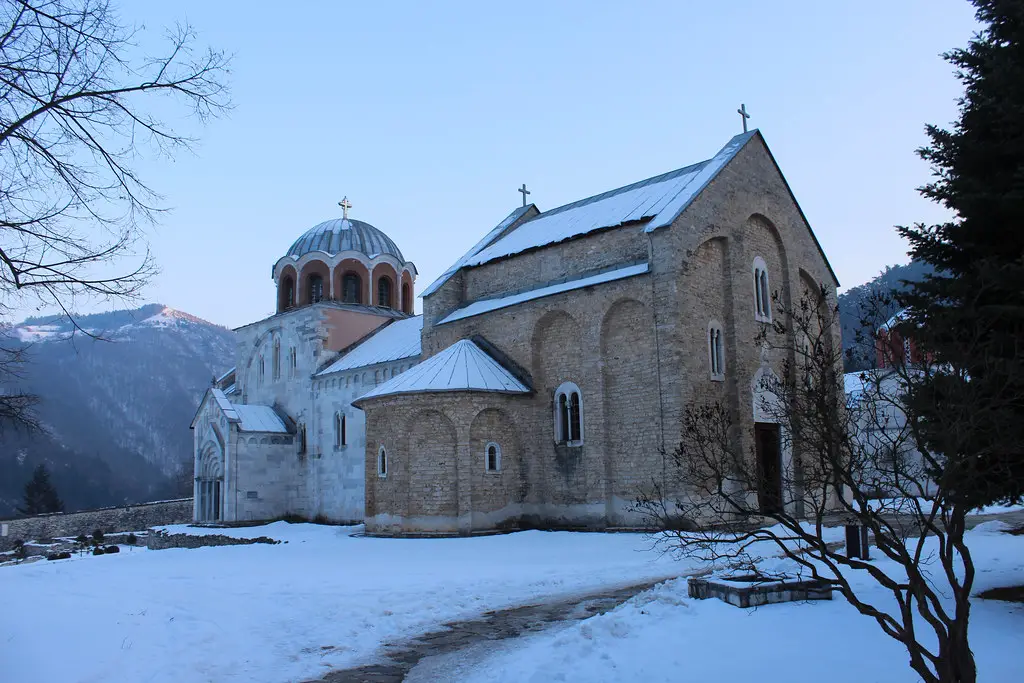
Studenica Monastery is a medieval Serbian Orthodox monastery located in central Serbia.
What to see or do: Admire the impressive white marble architecture with intricate carvings and frescoes. Visit the Church of the Virgin, where the renowned collection of Byzantine-style frescoes, featuring over 1,000 religious figures, is housed.
Marvel at the Holy Virgin’s sarcophagus, which is said to have healed the sick and fulfilled the wishes of those who pray before it.
Don’t miss: The peaceful garden with a beautiful view of the river and the surrounding mountains. The souvenir shop, which sells handcrafted items by the resident nuns, including honey, brandy, and religious icons.
Insider travel tips: Dress appropriately by covering your arms and legs before entering the monastery. Consider hiring a local guide to fully appreciate the history and significance of the monastery.
Plan to visit during a weekday to avoid the crowds.
13. Zlatibor Mountain
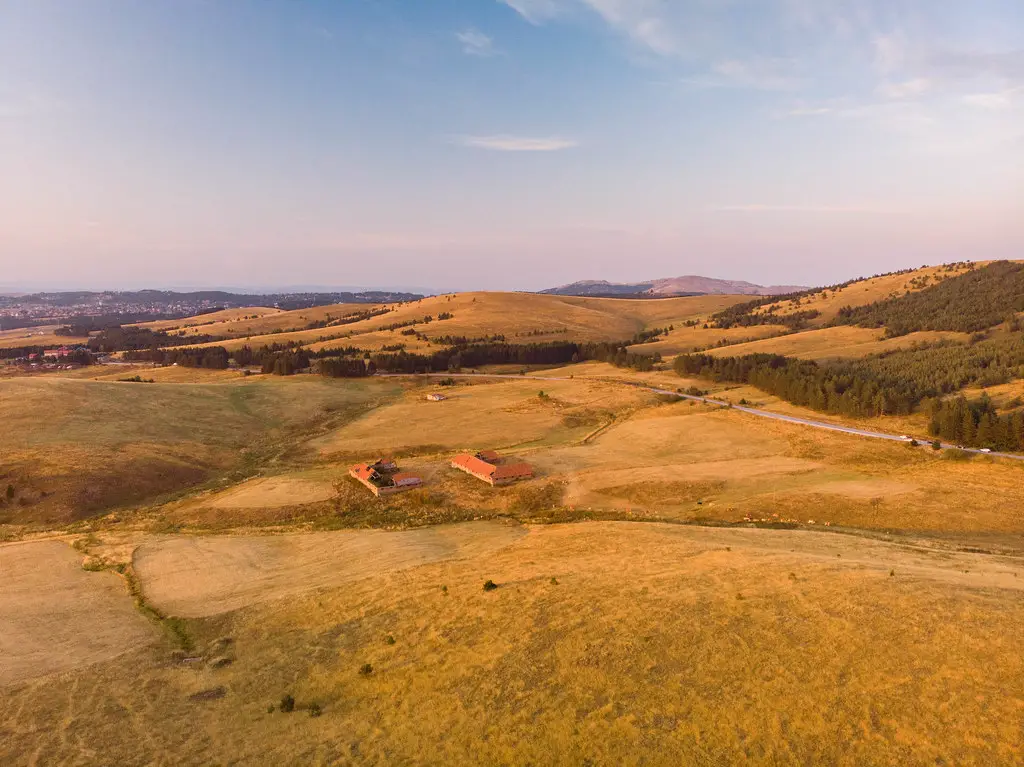
Zlatibor Mountain is a popular tourist destination located in western Serbia. It is known for its stunning natural beauty and abundance of outdoor activities.
What to see or do: – Enjoy skiing, snowboarding, and other winter sports at one of the mountain’s ski resorts.
Don’t miss: – Taste the traditional Serbian cuisine, especially the famous local dish “komplet lepinja”, a hearty breakfast sandwich.
Insider travel tips: – Consider visiting Zlatibor during the summer or fall months for mild temperatures and vibrant foliage.
14. Oplenac
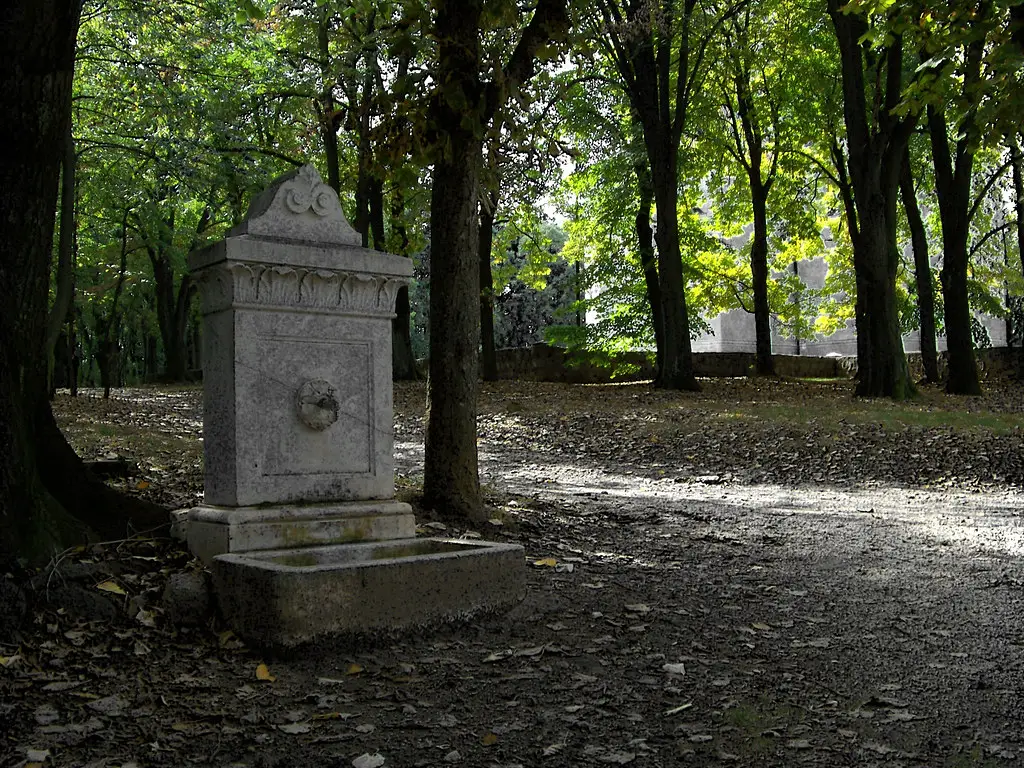
Oplenac is a Serbian national monument located on top of a hill in the town of Topola.
What to see or do: – Visit the St. George’s Church, an impressive white marble mausoleum featuring intricate mosaics and stunning frescoes.
Don’t miss: – The lavish interior of the St. George’s Church, adorned with gold leaf and decorated with frescoes depicting scenes from Serbian history.
Insider travel tips: – Make sure to wear comfortable shoes as there is quite a bit of walking involved in exploring the monument and its surroundings.
15. Fruska Gora National Park
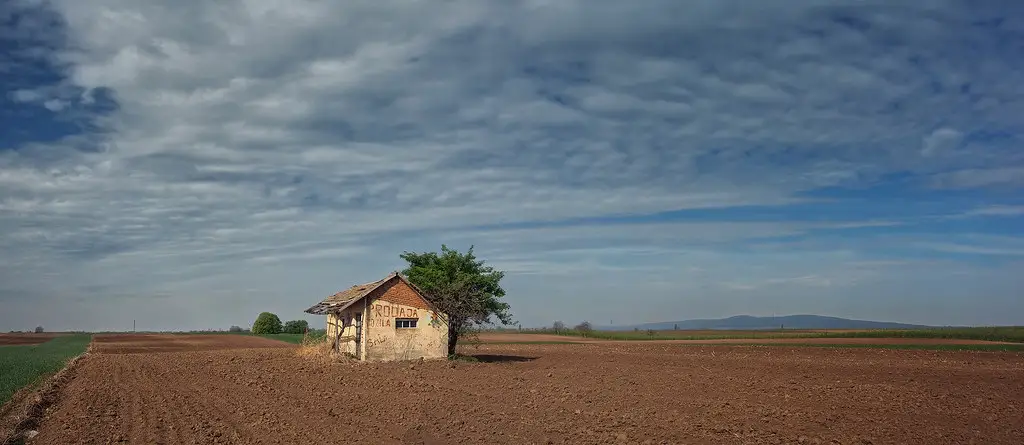
Fruska Gora National Park is a protected area in Serbia, known for its rich flora and fauna as well as cultural and historical heritage.
What to see or do: – Explore the extensive network of hiking and biking trails that wind through Fruska Gora’s lush forests, hills, and meadows.
Don’t miss: – The Fruska Gora Marathon, which takes place every October and attracts runners from all over the world.
Insider travel tips: – Be sure to bring sturdy walking shoes if you plan to explore the park’s hiking trails, as some of the paths can be steep and rocky.
16. Topcider Park
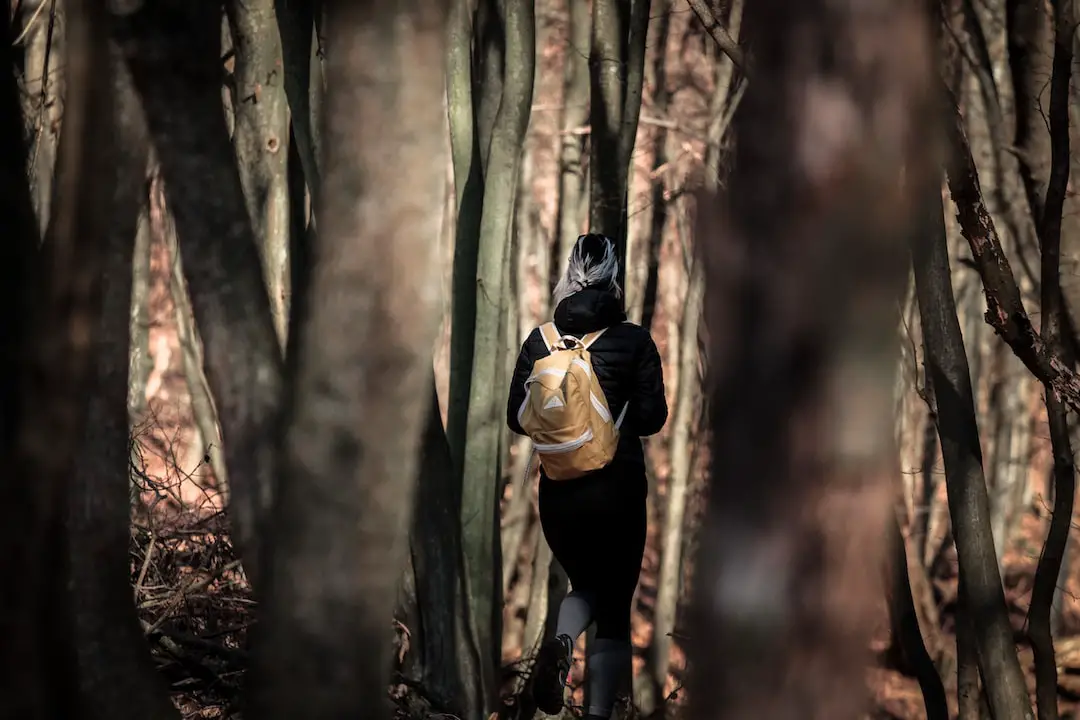
Topcider Park is a beautiful urban park in Belgrade, Serbia.
What to see or do: – Take a relaxing stroll through the expansive park, which spans over 200 hectares.
Don’t miss: – The stunning views of the city from the park’s highest point, called “Great Rock.
Insider travel tips: – Visit the park during the fall to see the changing colors of the trees.
17. Pancevo Bridge
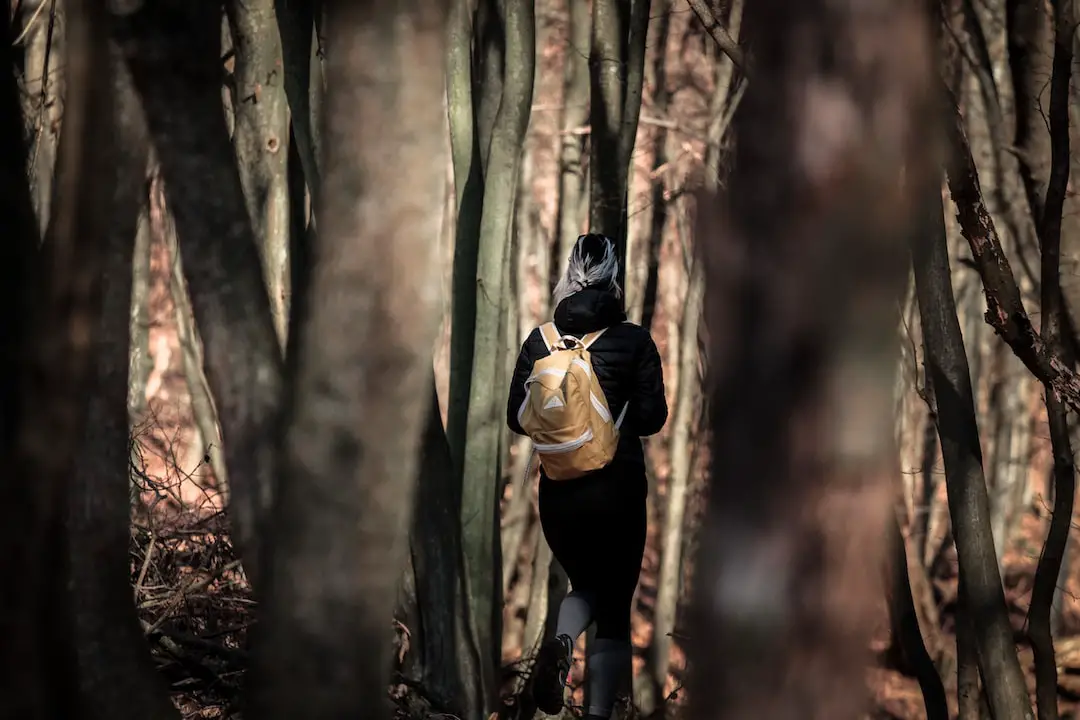
Pancevo Bridge is a cable-stayed bridge located in Belgrade, Serbia, over the Danube river.
What to see or do: Visitors can enjoy stunning panoramic views of the city and the Danube river from the bridge.
Don’t miss: The bridge is beautifully lit up at night, making it a perfect spot for an evening stroll.
Insider travel tips: For the best viewing experience, visit during the early morning or late afternoon hours when the lighting is especially beautiful.
If you are interested in photography, bring your camera along to capture the stunning views of the city and the river.
18. Fruška Gora Monasteries

Fruška Gora Monasteries are a collection of 17 Orthodox monasteries located on the slopes of Fruška Gora mountain in Serbia.
What to see or do: Visit the monasteries and admire the beautiful frescoes and architecture dating back to the 15th and 16th centuries. Take a walk in the peaceful natural surroundings and enjoy the tranquility.
Don’t miss: Visit the oldest and most important monastery, Krušedol, which is the final resting place of many members of the Serbian royal family.
Check out the unique inverted fresco at the Beočin monastery.
Insider travel tips: Dress modestly when visiting the monasteries and be respectful of the religious sites. Some of the monasteries offer accommodation, so consider staying overnight for a truly peaceful retreat.
Don’t forget to try some of the locally produced honey and wine.
For the best experience, hire a local guide who can provide you with an in-depth insight into the history and significance of these religious sites.
19. Palić Lake

Palić Lake is a picturesque lake located in the Northern part of Serbia near the town of Subotica.
What to see or do: Take a stroll along the beautiful promenade that stretches around the lake or rent a bike to explore the lake’s surroundings.
Take a boat ride to experience the tranquility of the lake. Visit the Zoo and the Art Nouveau-inspired Water Tower.
Don’t miss: The summer festivals that take place at the lake, which include the International Film Festival and the Guitar Festival. Relax at the lake’s sandy beach or enjoy a swim in one of the clearest waters in Europe.
Insider travel tips: Visit Palić Lake during weekdays for a less crowded experience. Enjoy a meal at one of the lake’s culinary highlights – the fish restaurants.
Don’t forget to try the local specialty wine of the same name – Palić wine.
20. Zemun
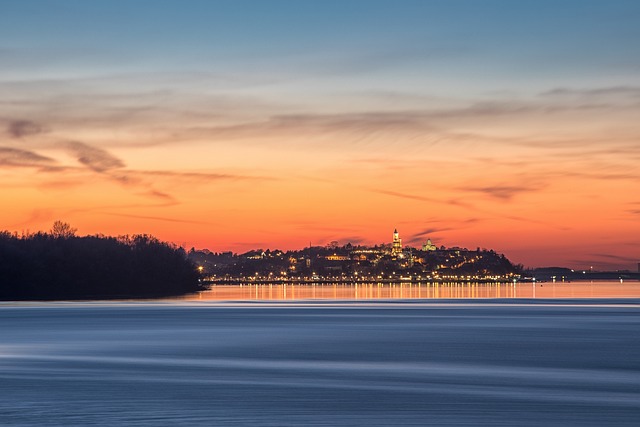
A historic neighborhood located on the banks of the Danube River in Belgrade, Serbia.
What to see or do: Explore the narrow streets lined with colorful architecture, visit the Zemun Market, and take a walk along the Millennium Bridge for stunning views of the river.
Don’t miss: The Gardoš Tower, a 19th-century tower with an observation deck offering panoramic views of Belgrade and the Danube River.
Insider travel tips: Don’t be afraid to get lost in the charming streets of Zemun; there are hidden gems around every corner. Also, try the local food specialties at one of the many restaurants or cafes in the neighborhood.
21. Gamzigrad-Romuliana
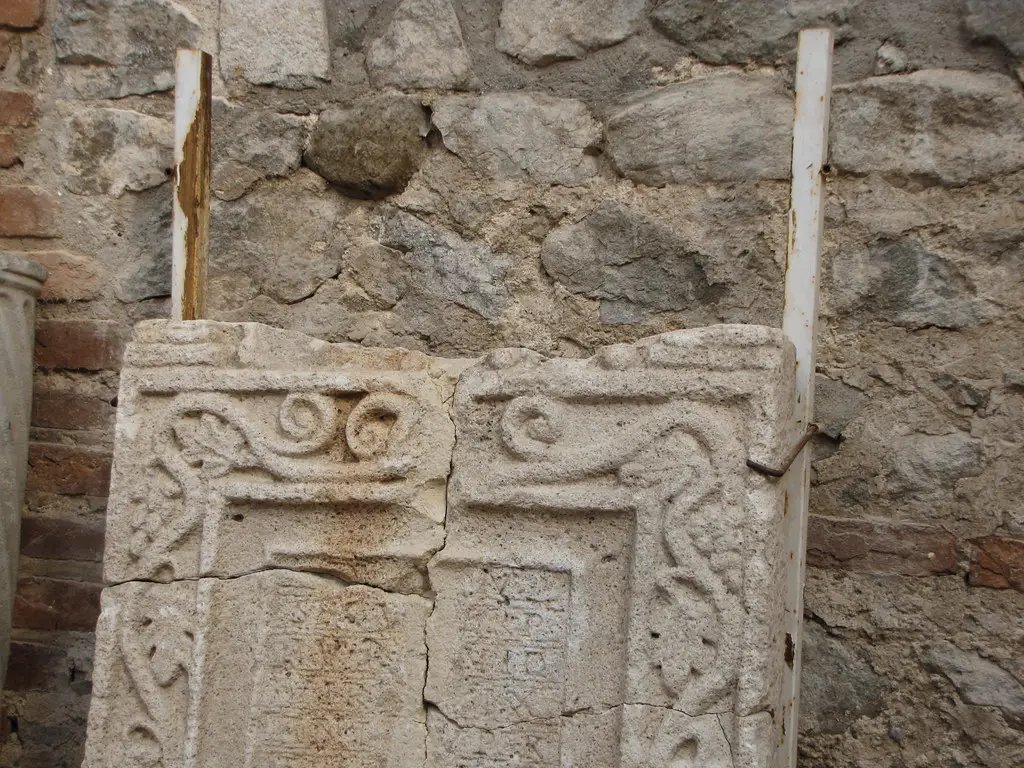
Gamzigrad-Romuliana is an archaeological site located in eastern Serbia, declared UNESCO World Heritage Site in 2007.
What to see or do: Visit the Palace of Galerius, a 4th-century complex that includes four temples and a large octagonal building which is thought to have been a mausoleum.
Marvel at the intricate mosaics, the remains of the Roman baths, and the amphitheater where gladiatorial games were held.
Don’t miss: The Felix Romuliana Museum, which displays an impressive collection of artifacts found on the site, including coins, jewelry, and ceramics. Also, see the tomb of Galerius, a massive stone structure with a relief depicting the emperor on horseback.
Insider travel tips: Wear comfortable shoes as the site is vast and there is a lot of walking involved.
If possible, visit early in the morning or late in the afternoon to avoid the crowds, and bring a hat and sunscreen as there is little shade.
To fully appreciate the history and significance of the site, consider hiring a guide.
22. Nis Fortress
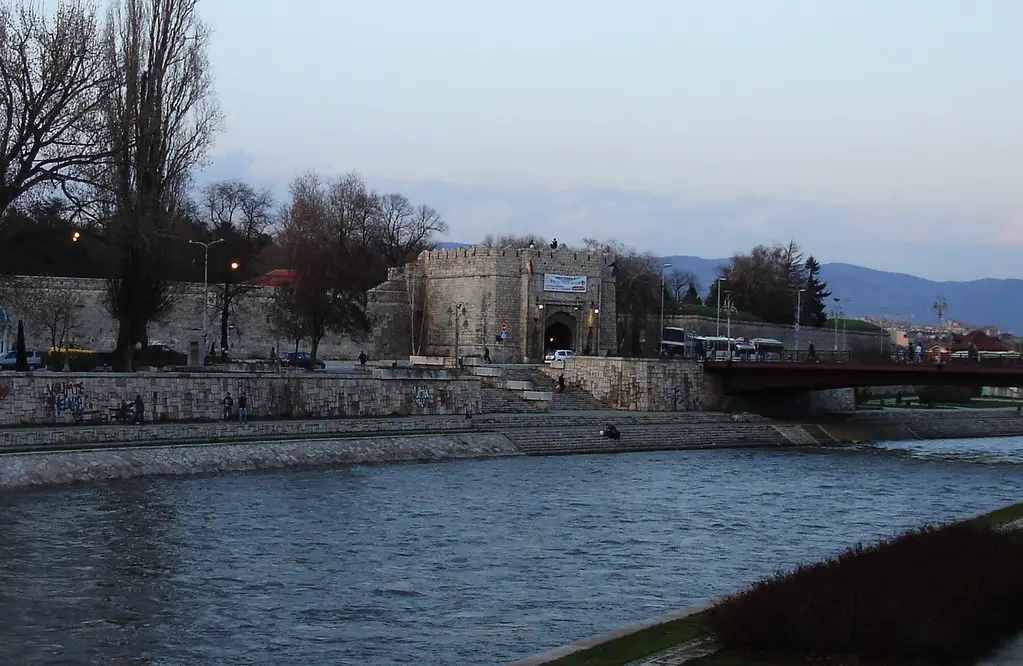
Nis Fortress is an impressive fortification located in the city of Nis, Serbia. It dates back to the Ottoman era and has been an important landmark throughout history.
What to see or do: Explore the fortress and its walls, which offer stunning views of the surrounding city. Visit the Ottoman hamam (bathhouse) and the clock tower, which are both located within the fortress.
Don’t miss: The medieval swords and weapons collection on display in the fortress museum. This collection includes some of the oldest and most intricate weapons in Serbia.
Insider travel tips: Visit the fortress in the evening for a unique atmosphere and stunning sunset views. Plan to spend at least 2-3 hours exploring the fortress and its surroundings.
Don’t forget to wear comfortable shoes as there are many stairs and uneven surfaces to navigate within the fortress.
23. Mediana
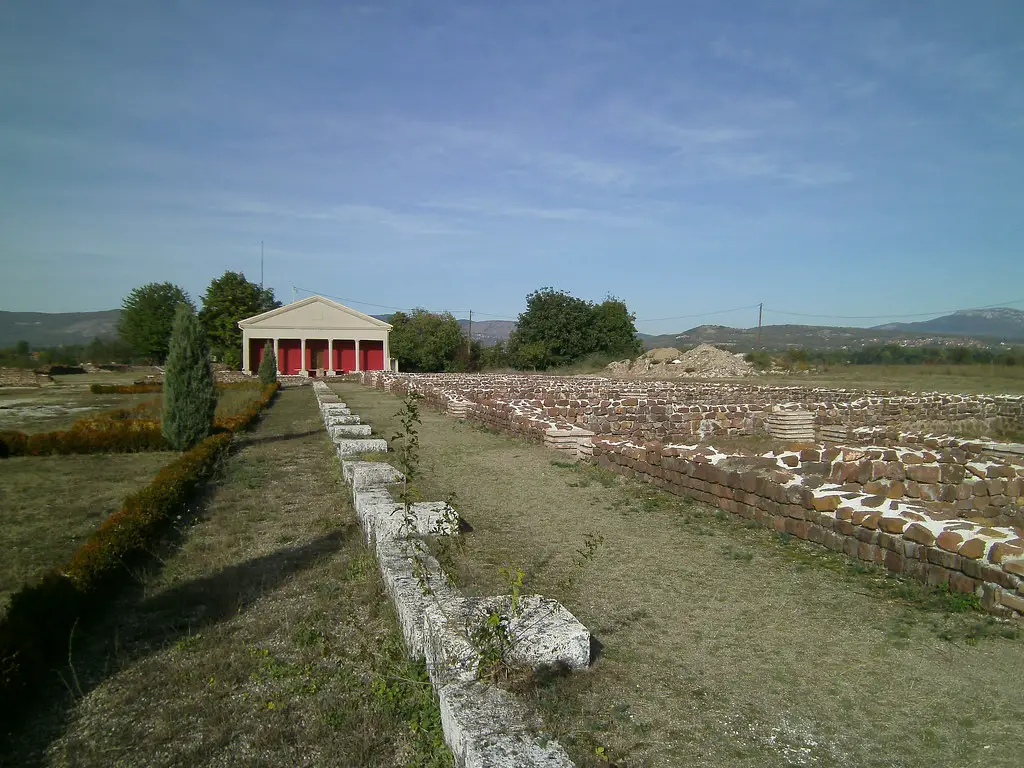
What to see or do: Explore the ruins of several Roman buildings including a palace, granary, and barracks. Visit the museum to see artifacts from the site.
Don’t miss: The beautifully preserved mosaic floors in the palace.
Insider travel tips: Wear comfortable shoes as the site is quite large and requires a fair amount of walking. Consider hiring a guide to learn more about the history and significance of the site.
24. Niška Banja

Niška Banja is a town located in southeastern Serbia, known for its thermal spas and natural beauty.
What to see or do: The town offers a number of spa and wellness treatments, including mineral baths, massages, and sauna sessions. Visitors can also hike through the nearby mountains and forests, or take a dip in the nearby Sićevo Gorge.
For history buffs, the town is home to numerous cultural and historical sites, including the Turkish Bath, the Skull Tower, and the Niš Fortress.
Don’t miss: Make sure to take a relaxing dip in one of the town’s many thermal pools, or take a stroll through the beautiful Sveti Sava Park.
Don’t miss the opportunity to try some delicious local food and wine, such as the traditional Serbian dish of grilled meat, or the local wines of Sićevo.
Insider travel tips: Be sure to book your spa treatments in advance, as the town can get busy during peak seasons.
Additionally, if you’re interested in hiking or exploring the nearby mountains, hiring a local tour guide is recommended to ensure your safety and maximize your experience.
Finally, don’t forget to bring your walking shoes – the town is best explored on foot!
25. Devil’s Town
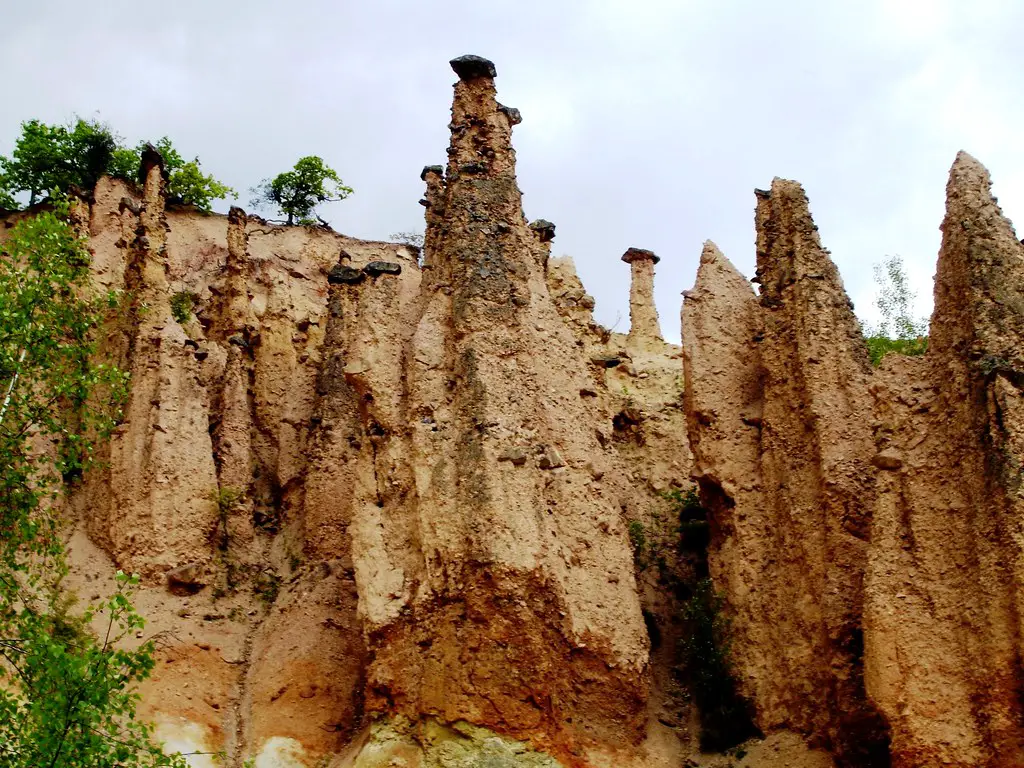
Devil’s Town is a natural rock formation located in southern Serbia, comprising of 202 stone towers formed by erosion.
What to see or do: Visitors can hike through the formations and take in the unique and eerie landscape that resembles a small village of eerie, natural sculptures made from rock.
Don’t miss: Make sure not to miss the two huge formations known as “The Devil” and “The Devil’s Wife”, which are the most iconic rocks in the area.
Insider travel tips: -It is best to visit in the early morning or late afternoon to avoid the crowds and heat.
26. Uvac Canyon

A stunning canyon nestled in western Serbia, with a meandering river and dramatic rock formations.
What to see or do: Enjoy a boat ride down the tranquil Uvac River, where the crystal-clear waters reflect the surrounding cliffs.
Take in the breathtaking views of the canyon walls and keep an eye out for the diverse bird species that call this canyon home.
Don’t miss: Visiting the Ice Cave, a natural wonder full of stalactites and stalagmites that glimmer in the light. The cave is only accessible by boat.
Insider travel tips: – The best time to visit is in the spring or fall when the weather is milder and the crowds are thinner.
27. Golubac Fortress
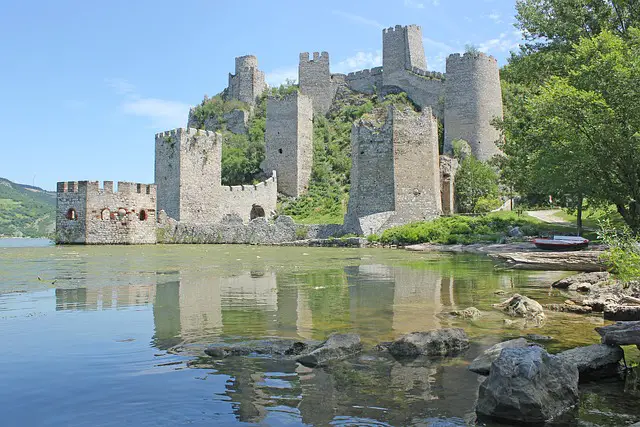
Golubac Fortress is a medieval fortress located on the Danube River in Serbia.
What to see or do: Visitors can explore the fortress and its grounds, which include towers, gates, and a museum. The fortress offers stunning views of the Danube River and the surrounding countryside.
Don’t miss: Don’t miss the opportunity to walk along the fortress walls and enjoy the breathtaking views. Be sure to visit the museum, which features exhibits about the fortress’s history and the region’s culture.
Insider travel tips: – Plan your visit for the morning or late afternoon to avoid the heat of the day.
28. Kopaonik Mountain
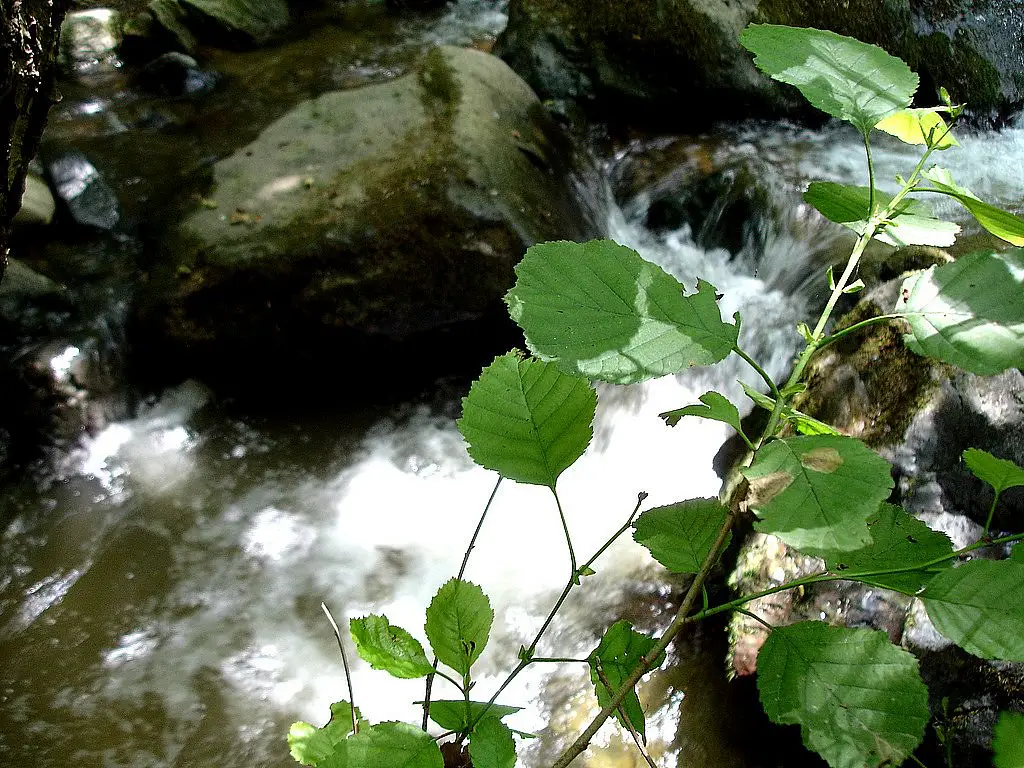
Kopaonik Mountain is the largest mountain range in Serbia, located in central Serbia. It is a popular destination for skiing and winter sports.
What to see or do: Skiing, snowboarding, hiking, mountain biking, and other outdoor activities are popular on Kopaonik Mountain. The area is also famous for its natural beauty, with stunning views and diverse flora and fauna.
Don’t miss: Don’t miss the opportunity to visit the Kopaonik National Park, which covers an area of over 100 square kilometers and is home to various endangered species of plants and animals.
Additionally, the mountain is known for its hot springs, so be sure to take a dip in one of the many thermal spas.
Insider travel tips: For the best skiing experience, visit Kopaonik during the winter months from December to March. Avoid the peak season if you are looking for a more peaceful experience.
Also, don’t forget to try the local food, including traditional Serbian dishes like cevapi and sarma.
29. Đavolja Varoš

Đavolja Varoš (Devil’s Town) is a natural wonder located in southern Serbia. It features over 200 rock formations that resemble hoodoos or earth pyramids.
What to see or do: Visitors can take a leisurely walk along the marked paths and observe the unique rock formations. There are also several viewpoints for breathtaking views of the surrounding terrain.
Don’t miss: Make sure to check out the two main rock formations, nicknamed Djavolja Varos (Devil’s Town) and Djavolja voda (Devil’s Water). These formations are the most popular and recognizable in the park.
Insider travel tips: – Wear comfortable shoes as the terrain can be uneven and rocky.
30. Manasija Monastery
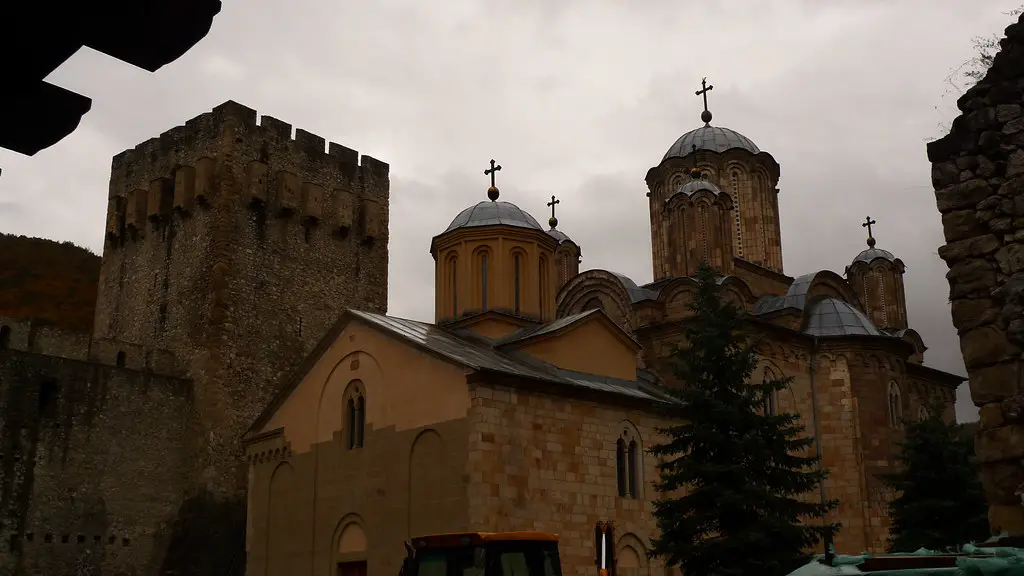
Manasija Monastery, also known as the Resava Monastery, is a Serbian Orthodox monastery located in the eastern part of Serbia.
What to see or do: Visitors can explore the beautiful architecture of the monastery, which dates back to the 15th century, as well as the splendid frescoes that decorate the inside of the church.
The monastery also has a fascinating history, as it served as a cultural and educational center during the time of its founder, Despot Stefan Lazarević.
Don’t miss: One of the highlights of a visit to Manasija Monastery is the famous fresco of the Resurrection, which is considered one of the most impressive artistic achievements of the medieval Serbian state.
Insider travel tips: Visitors should take the time to stroll through the monastery’s peaceful gardens, which are filled with fragrant flowers and offer spectacular views of the surrounding countryside.
It’s also worth noting that the monastery is located near the Resava cave system, which is another popular attraction in the area.